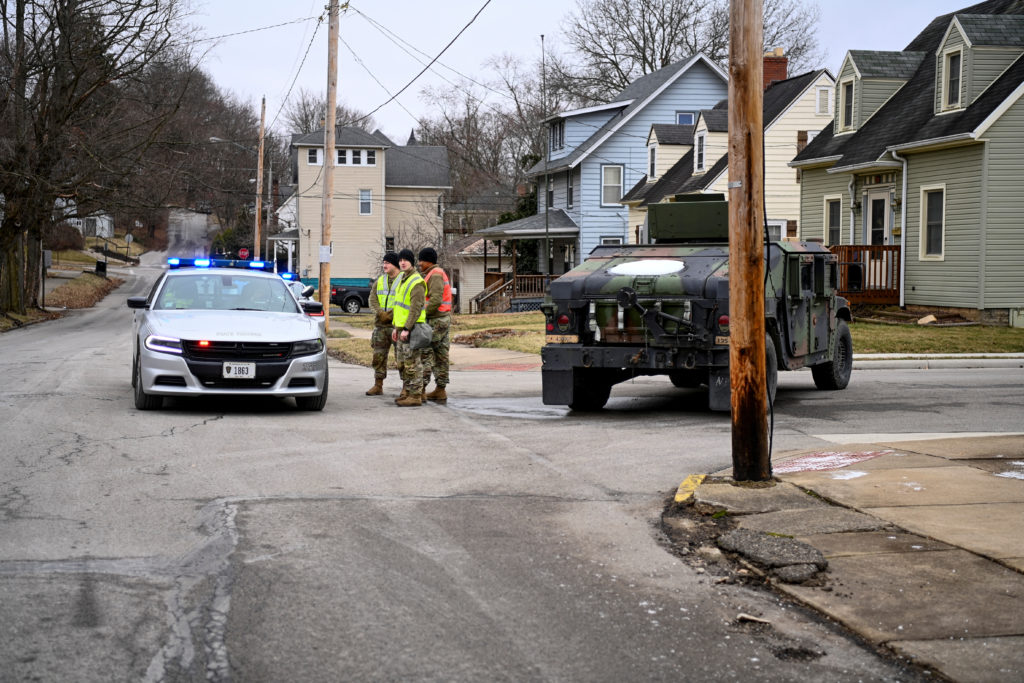Adult Autism Diagnosis: Understanding The Transformative Journey

Table of Contents
Recognizing the Signs of Autism in Adults
While autistic traits in children are often readily apparent, adult autism symptoms can be more subtle and manifest differently. Many adults with autism have learned to mask or compensate for their difficulties, leading to a late diagnosis. However, several common autistic traits persist into adulthood.
- Social Challenges: Difficulty initiating or maintaining conversations, interpreting social cues (body language, tone of voice), understanding unspoken rules of social interaction, preferring solitary activities.
- Communication Difficulties: Literal interpretation of language, challenges with understanding nuances of communication, difficulties expressing emotions, struggling with abstract concepts.
- Sensory Sensitivities: Over- or under-sensitivity to sounds, lights, textures, tastes, or smells. This can significantly impact daily life and contribute to anxiety or overwhelm.
- Repetitive Behaviors/Routines: Need for predictability and routine, engaging in repetitive movements or self-stimulating behaviors, strong adherence to specific routines or rituals.
- Inflexible Thinking: Difficulty adapting to changes in plans, rigid thinking patterns, challenges with multitasking or switching between tasks.
- Executive Functioning Difficulties: Problems with planning, organization, time management, working memory, and impulse control.
These traits can significantly impact daily life. Social difficulties may lead to isolation or strained relationships. Communication challenges can affect work performance and career advancement. Sensory sensitivities can trigger anxiety and overwhelm, impacting overall well-being. It’s crucial to differentiate autism from other conditions with overlapping symptoms, such as social anxiety disorder or obsessive-compulsive disorder. Understanding the autism diagnosis criteria, specifically the DSM-5 criteria, is key for accurate assessment. Many adults are diagnosed with "high-functioning autism," a term that is increasingly being replaced with Level 1 Autism Spectrum Disorder to avoid connotations of ability.
The Diagnostic Process for Adult Autism
The process of obtaining an adult autism diagnosis involves several key steps. It is essential to find a qualified professional experienced in diagnosing autism in adults.
- Finding a Qualified Professional: Seek a psychologist or psychiatrist specializing in autism spectrum disorder. These professionals possess the expertise to conduct thorough evaluations.
- Undergoing a Comprehensive Evaluation: This typically involves a series of interviews, questionnaires (like the Autism Diagnostic Observation Schedule – ADOS or Autism Diagnostic Interview – ADI-R), and cognitive assessments. The goal is to gather a comprehensive understanding of your history and present-day challenges.
- Understanding the Diagnostic Criteria: The assessment will be conducted against the criteria outlined in the DSM-5, the standard diagnostic manual for mental health disorders.
Thorough diagnostic testing is crucial for an accurate diagnosis. The process may take time, and it's vital to be patient and persistent. Keywords like "autism assessment adults," "diagnostic criteria DSM-5," and "finding an autism specialist" can aid in your search for appropriate resources.
Coping with an Adult Autism Diagnosis
Receiving an adult autism diagnosis can evoke a range of emotions – relief at finally understanding oneself, grief for lost time and opportunities, uncertainty about the future. It's essential to process these feelings in a healthy way.
- Seeking Support: Therapy, particularly cognitive behavioral therapy (CBT) or dialectical behavior therapy (DBT), can be invaluable in developing coping strategies. Joining adult autism support groups provides a safe space to connect with others who understand your experiences.
- Developing Coping Mechanisms: Self-care strategies, including regular exercise, mindfulness practices, and healthy eating, are crucial for managing stress and anxiety. Learning techniques for sensory regulation can help mitigate sensory overload. Adjusting expectations, both for oneself and others, can reduce frustration and improve self-compassion.
- Accessing Resources and Support Networks: Many organizations offer resources and support specifically designed for adults with autism. These resources can help navigate challenges, connect with community, and foster a sense of belonging.
Keywords like "adult autism support groups," "autism therapy," and "coping with autism diagnosis" can be used to locate these vital resources.
Life After Diagnosis: Embracing Support and Self-Acceptance
An adult autism diagnosis doesn't define you; it provides a framework for understanding your strengths, challenges, and unique perspectives. It also unlocks access to support and opportunities for personal growth.
- Utilizing Support Services: Occupational therapy can help develop adaptive skills for daily living. Speech therapy can improve communication and social interaction skills. Other therapies like sensory integration therapy may also be beneficial.
- Connecting with the Autism Community: Online forums, local support groups, and advocacy organizations provide invaluable connections with others who share similar experiences. This fosters a sense of belonging and reduces feelings of isolation.
- Self-Advocacy: Learning to advocate for your needs and preferences is a crucial skill. This empowers you to communicate effectively with professionals, employers, and others in your life.
Embracing neurodiversity and practicing self-acceptance are essential components of living well with autism. Keywords like "neurodiversity affirmation," "self-advocacy autism," and "autism resources" can help you find support and community.
Moving Forward After Your Adult Autism Diagnosis
Receiving an adult autism diagnosis can be a challenging but ultimately transformative journey. We’ve explored recognizing signs, navigating the diagnostic process, developing coping mechanisms, and the importance of self-acceptance and community support. Remember, the diagnosis itself is not a limitation; it's an opportunity for self-discovery and personal growth. It unlocks access to support services, empowers self-advocacy, and helps build meaningful connections within the autism community. If you suspect you might be autistic, seeking an adult autism diagnosis is a crucial step towards self-discovery and a more fulfilling life. Take the first step towards understanding yourself better by researching resources and finding a qualified professional. [Link to relevant organization 1] [Link to relevant organization 2]

Featured Posts
-
 Google Faces Constitutional Challenge In Competition Bureau Case
May 30, 2025
Google Faces Constitutional Challenge In Competition Bureau Case
May 30, 2025 -
 Alastqlal Rmz Alkramt Walsyadt Alwtnyt
May 30, 2025
Alastqlal Rmz Alkramt Walsyadt Alwtnyt
May 30, 2025 -
 Ohio Train Derailment Long Term Impact Of Toxic Chemicals On Buildings
May 30, 2025
Ohio Train Derailment Long Term Impact Of Toxic Chemicals On Buildings
May 30, 2025 -
 Slawomir Mentzen I Wybory Prezydenckie 2025 Co Czeka Wyborcow
May 30, 2025
Slawomir Mentzen I Wybory Prezydenckie 2025 Co Czeka Wyborcow
May 30, 2025 -
 Marine Le Pen Immunite Parlementaire Et Interpretation De La Loi Selon Jacobelli
May 30, 2025
Marine Le Pen Immunite Parlementaire Et Interpretation De La Loi Selon Jacobelli
May 30, 2025
 Roland Garros 2025 Key Matches To Watch
Roland Garros 2025 Key Matches To Watch
